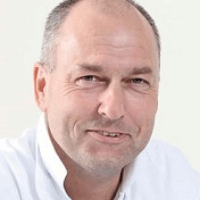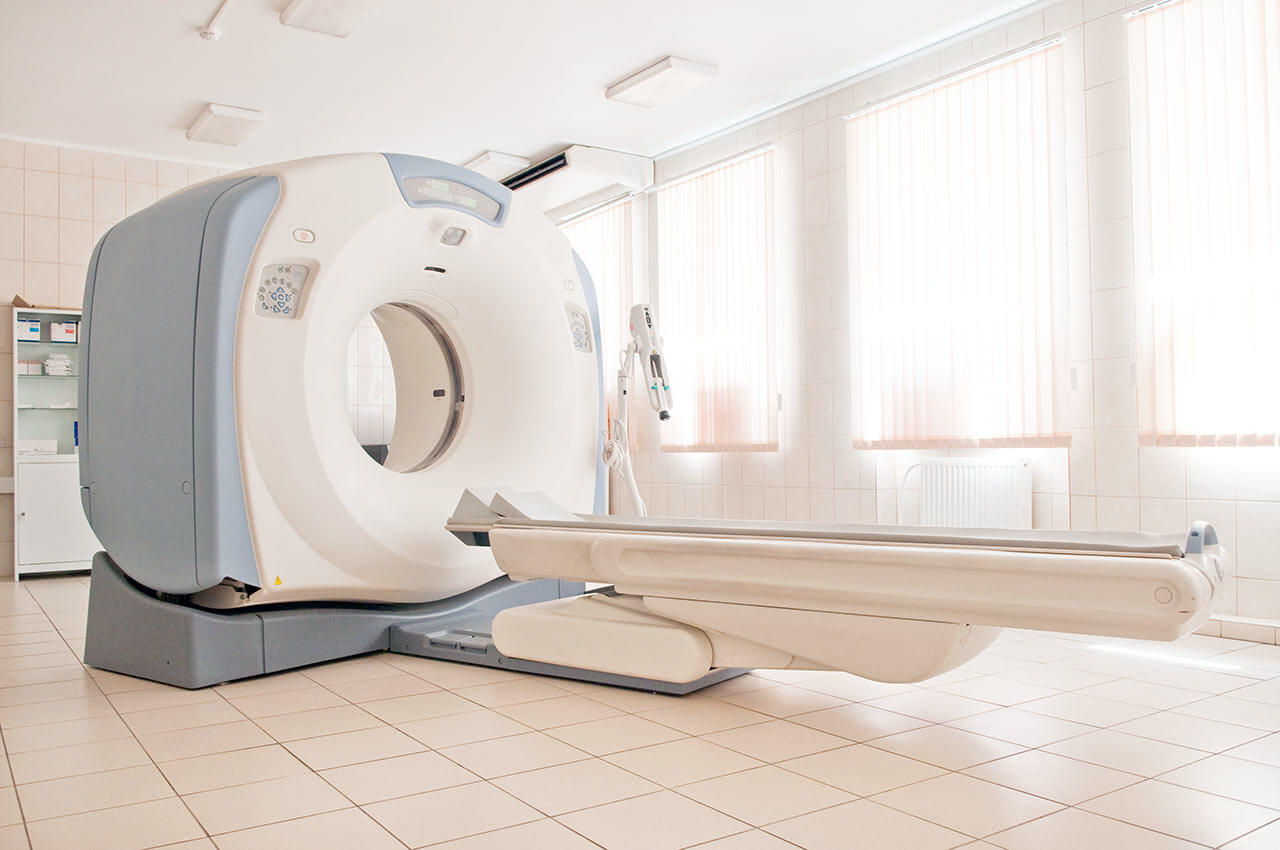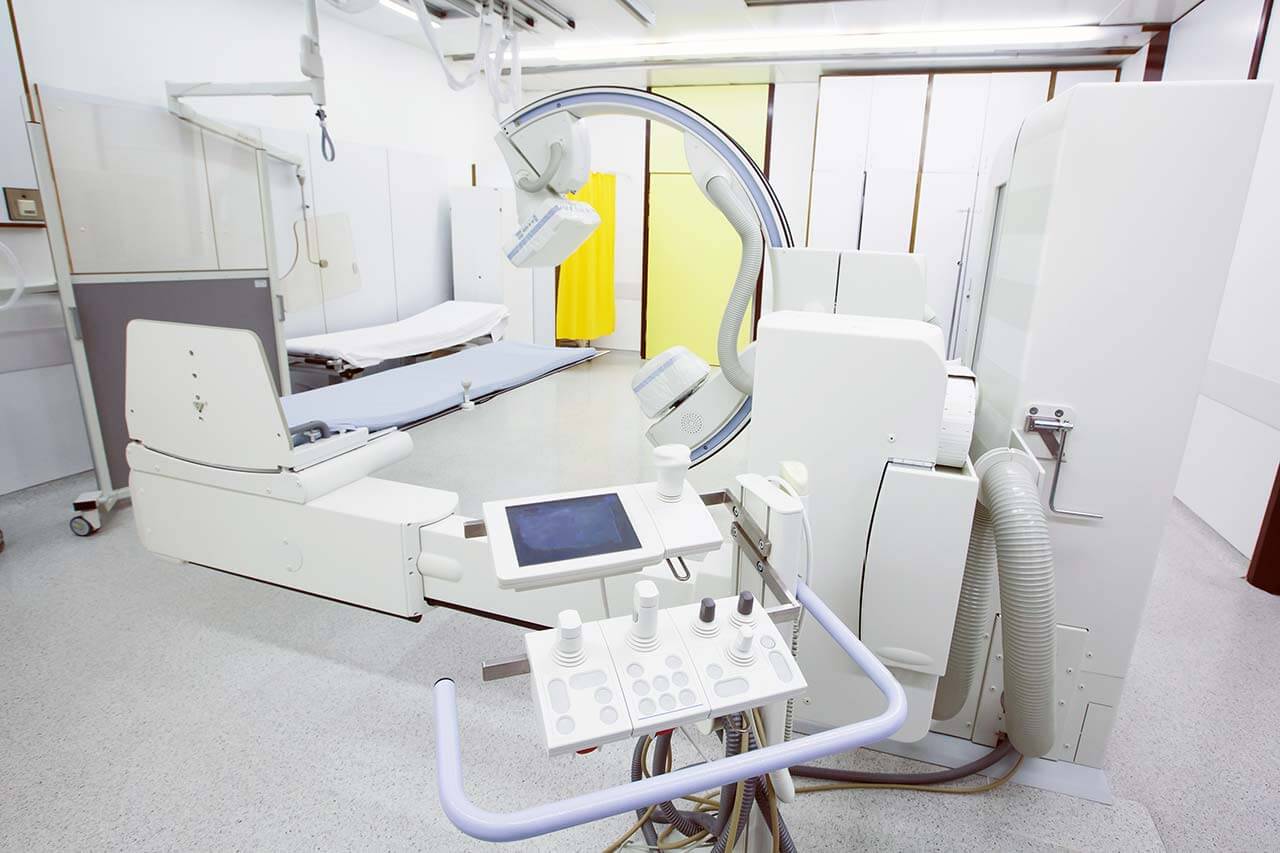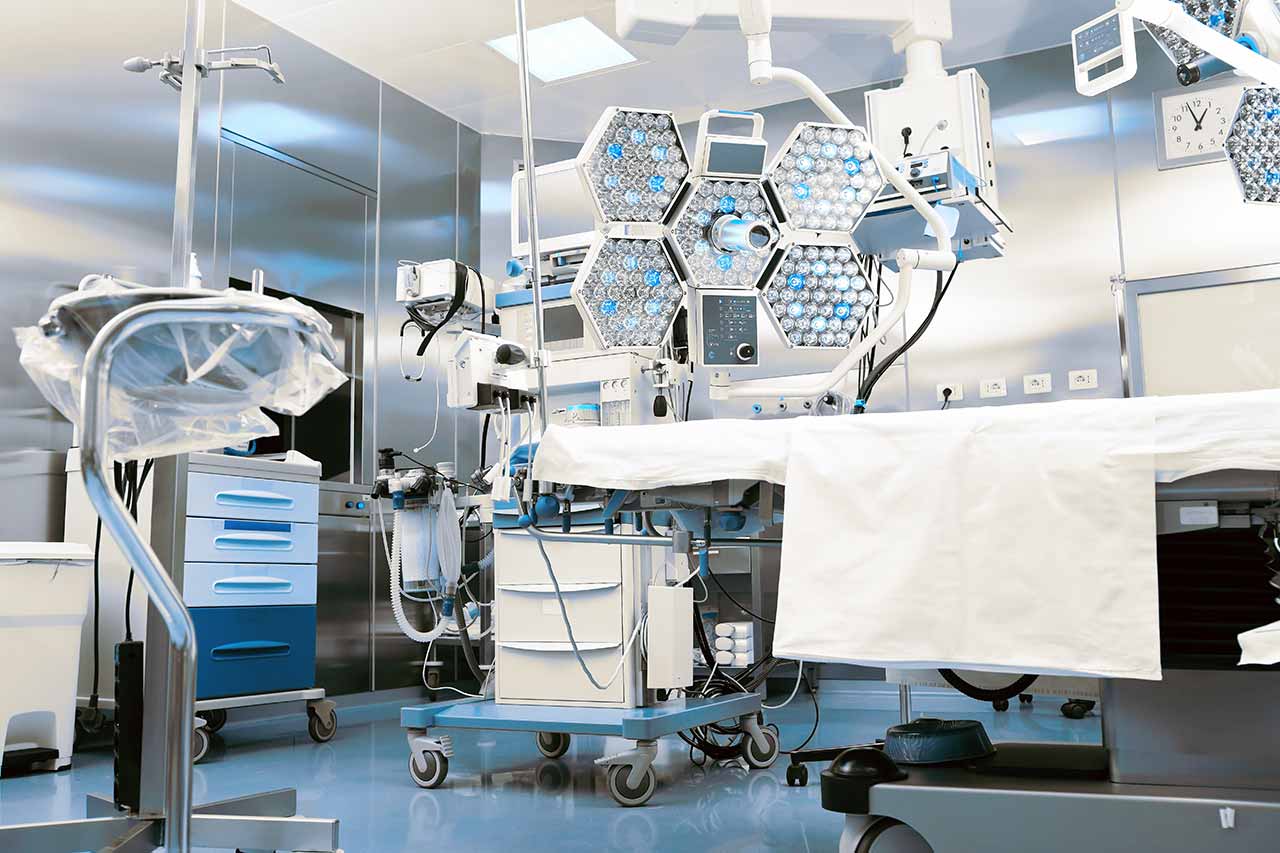
The program includes:
- Initial presentation in the clinic
- clinical history taking
- physical examination
- laboratory tests:
- complete blood count
- biochemical analysis of blood
- indicators of inflammation
- indicators blood coagulation
- ophthalmologic examination:
- ophthalmoscopy
- gonioscopy
- pachymetry
- perimetry (visual field test)
- computerperimetry
- Goldmann-primetry
- fluorescein angiography
- thermography
- capillary microscopy
- testing for optic nerve damage
- tonometry
- intraocular pressure measurement
- preparation according to preoperative standard
- treatment of congenital glaucoma with total or basal iridectomy
- symptomatic treatment
- cost of required medications
- nursing staff services
- elaboration of further recommendations
Required documents
- Medical records
Service
You may also book:
 BookingHealth Price from:
BookingHealth Price from:
About the department
The Department of Adult and Pediatric Ophthalmology at the University Hospital Freiburg is one of the largest of its kind in Germany and offers the full range of services in the field of its specialization. It provides an effective treatment of corneal and conjunctival diseases, correction of strabismus, treatment of diseases of the retina and optic nerve, as well as eye diseases in children. The doctors of the department have an extensive clinical experience and high professionalism, thanks to which they provide medical care to patients with rare diseases, complex clinical cases and severe consequences of eye pathology, including hereditary diseases, life-threatening infections and tumors. The department is headed by Prof. Dr. med. Thomas Reinhard.
The service range of the department includes:
Diagnostics and treatment of all forms of glaucoma
- Diagnostic options
- Inpatient measurement of intraocular pressure (including night measurement)
- Corneal thickness measurement (pachymetry)
- Visual field test: static perimetry (Octopus), kinetic perimetry (Goldmann)
- Optic nerve testing
- Optic disc biomorphometry with Heidelberg laser retinotomography and optical coherence tomography (RNFL-OCT, BMO-OCT)
- Electrophysiology: electroretinogram for early detection of glaucoma-associated damage to retinal ganglion cells with functional vision testing
- Other types of examinations
- Surgical treatments
- Glaucoma filtering surgery: trabeculectomy, XEN implant
- Surgery of the angle of the anterior chamber of the eye: trabecular aspiration, trabeculotomy, trabeculotomy ab interno with thrombectomy, selective laser trabeculoplasty
- Implantation in glaucoma: Baerveldt implant
- Cyclodestructive interventions: cyclophobic coagulation, cyclocoagulation
- Iridectomy, laser iridotomy
- Combined cataract and glaucoma surgery (Phako/HKL and trabectomy)
- Other treatment methods
Diagnostics and treatment of cataract
- Microsurgical removal of the blurred lens and its replacement by an artificial lens (installation of an intraocular lens)
- Intraocular contact lenses (most often monofocal)
- Toric intraocular lenses
- Other types of lenses
Diagnostics and treatment of all conjunctival and corneal diseases
- Conjunctival and corneal diseases
- Inflammatory processes in the conjunctiva and cornea of various origins
- Viral corneal diseases (especially herpes)
- Benign and malignant tumors of the conjunctiva
- Dystrophy and degeneration of the cornea (for example, keratoconus)
- Limb stem cell lesions (for example, ocular cicatricial pemphigoid after chemical burns)
- Other diseases
- Surgical treatments
- Corneal transplantation (perforating keratoplasty and lamellar keratoplasty: DALK, DMEK, DSAEK) using trepanation system, femtosecond laser, etc.
- Limb stem cells transplantation (autologous and homologous)
- Amniotic membrane transplantation (single-layered, multilayered)
- Physical therapy in persistent microbial diseases (thermo-, cryocoagulation, phototherapeutic keratectomy)
- Laser corneal surgery (phototherapeutic keratectomy, LASIK)
- Other treatments
Diagnostics and treatment of all diseases of the eyelids, periorbita, lacrimal glands and lacrimal ducts
- Diseases of the eyelids, periorbita, lacrimal glands and lacrimal ducts
- Inflammatory processes in the eyelid and periorbita of different genesis
- Blepharitis
- Eyelid deformities (entropion, ectropion, ptosis and dermatochalasis)
- Scarring on the eyelids and periorbita
- Impaired eyelid function in facial nerve paralysis
- Malignant eyelid tumors (for example, basal cells, squamous cell carcinomas, melanomas)
- Benign eyelid tumors (for example, xantelasma, papilloma, cysts)
- Orbital tumors
- Problems with prosthetics for anophthalmos treatment
- Inflammatory processes in the lacrimal glands and lacrimal ducts, as well as their obstruction
- Damage and dysfunction of the lacrimal ducts
- Consequences of injuries
- Other pathologies
- Surgical treatments
- Treatment of facial nerve paralysis
- Surgery to correct entropion, ectropion and ptosis
- Blepharoplasty
- Plastic reconstructive surgery in oncological diseases of the eyelids and periorbita
- Treatment of orbital tumors
- Anophthalmic surgery
- Aesthetic eyelid surgery (blepharoplasty of the upper and lower eyelids)
- Scar revision
- Lacrimal duct surgery (including endoscopic surgery)
- Other treatments
Neuro-ophthalmology, pediatric ophthalmology, strabismus treatment
- Neuro-ophthalmology
- Optic nerve inflammation
- Optic nerve infraction
- Hereditary diseases of the optic nerve (for example, hereditary optic nerve neuropathy)
- Brain tumors
- Multiple sclerosis
- Stroke
- Conditions after accidents
- Other diseases and pathological changes
- Pediatric ophthalmology
- Congenital cataract
- Pediatric glaucoma
- Retinopathy of prematurity
- Retinitis pigmentosa
- Macular degeneration
- Eye injuries
- Other pediatric eye diseases
- Strabismus correction (orthoptics)
- Strabismus in children
- Decompensated strabismus with diplopia
- Paralysis of cranial nerves
- Amblyopia
- Other pathologies
Diagnostics and treatment of retinal diseases
- Diagnostic services
- Spectral optical coherence tomography (Spectralis, Cirrus)
- Optical coherence tomography with angiography
- Autofluorescence
- Microperimetry
- Fluorescein retinal angiography
- Indocyanine angiography
- All electrophysiological studies
- Other diagnostic methods
- Surgical treatments
- Vitreoretinal surgery
- Laser technologies and cryotherapy
- Intravitreal operative medication
- Radiation therapy for macular degeneration (IRay®)
- Other surgical treatments
- Other diagnostic and therapeutic services
Curriculum vitae
- 1989 Doctoral dissertation defense at the RWTU Aachen.
- 1989 - 2003 Further education, Ophthalmologist, then Acting Head and Senior Physician in the Department of Ophthalmology at the University Hospital Duesseldorf.
- 1994 - 2003 Foundation and management of the LIONS Eye Bank, North Rhine-Westphalia.
- 1996 Habilitation at the Heinrich Heine University Duesseldorf.
- Since 2003 Medical Director of the Department of Adult and Pediatric Ophthalmology at the University Hospital Freiburg.
- 2003 - 2005 Foundation and management of the LIONS Eye Bank, Baden-Württemberg.
- 2003 - 2011 Editor of the column in European Manual of Ophthalmology.
- 2004 - 2007 First President of the Freiburg Medical Society.
- 2006 - 2009 Deputy Dean of the Faculty of Medicine, University of Freiburg.
- 2006 - 2009 Board Member of Bio Implant Services (BIS), Leiden/Netherlands.
- 2006 - 2009 Board Member of the Federal Association of German Ophthalmic Surgeons (BDOC).
- 2008 Establishment of a network of Eyenet Baden-Württemberg Private Practices.
- 2008 - 2011 First Representative of the Network of Eye Clinics of Southern Baden (Augennetz Südbaden).
- 2009 - 2010 Vice President of the German Society of Ophthalmology (DOG).
- 2009 - 2013 Board Member of the EUCornea.
- 2010 Foundation of a Counseling Service for Eye Injuries during Accidents (in Freiburg and two neighboring regions).
- 2010 - 2011 President of the German Society of Ophthalmology (DOG).
- 2011 - 2012 Vice President of the German Society of Ophthalmology (DOG).
- 2012 - 2014 Treasurer of the German Society of Ophthalmology (DOG).
- Since 2014 Secretary General of the German Society of Ophthalmology (DOG).
Main Research Focuses
- Corneal surgery (in particular, all forms of corneal transplantation, perforating and lamellar keratoplasty, limbal stem cell transplantation and amniotic transplantation).
- Cataract and glaucoma surgery.
Positions in Scientific Societies and Institutes
- Since 2001 Board Member of the Section of Corneal Diseases of the German Society of Ophthalmology.
- Since 2006 Editor of the column in Der Ophthalmologe
- Since 2008 Member of the General Presidium of the German Society of Ophthalmology (DOG).
- Since 2008 Representative of the Tissue and Biotechnology Transplant Section (formerly the Working Group of German Corneal Transplant Banks) of the German Society of Ophthalmology.
- Since 2009 Member of the Leading Presidium of the German Society of Ophthalmology.
- Since 2009 Board Member of the European Tissue Transplantation Banks.
- Since 2010 Editor of Deutsches Ärzteblatt.
Membership in Advisory Councils
- Since 2006 Member of the Scientific Advisory Board of the German Federal Medical Association.
Awards
- In total, 16 awards, the most notable of which are the Leonhard Klein Award, the Award for Achievements in Ophthalmic Surgery (German Society of Ophthalmology), Goldene Chibret Medaille.
Photo of the doctor: (с) Universitätsklinikum Freiburg
About hospital
The University Hospital Freiburg is famous for its rich history and is one of the oldest and most prestigious medical facilities in Germany (one of the three best medical institutions in the country). The hospital was based on the Faculty of Medicine of the Albert Ludwig University of Freiburg, which celebrated its 550th anniversary in 2007. It should be noted that the hospital is proud of its world-renowned specialists, many of whom during their work here have become Nobel laureates.
The medical facility represents all fields of modern medicine. It consists of 42 departments, 11 institutes and 10 interdisciplinary centers. The highly qualified doctors of the hospital deal with the treatment and rehabilitation of patients with both common and rare diseases. All departments and institutes of the hospital take an active part in fundamental researches of international scale, due to which patients have access to the very latest achievements of medicine, advanced diagnostic methods, state-of-the-art medical equipment and proven effective methods of therapy.
The hospital has a variety of medical achievements, for example, the world's first TIPS procedure, the first implantation of the Jarvik-2000 artificial heart in Europe, the first robotic-assisted surgery on the brain, and the first combined cardiopulmonary transplantation in the land of Baden-Württemberg. In 2004, the University Hospital Freiburg became the first German hospital, which performed kidney transplantation in the incompatibility of blood groups. At the moment, the hospital belongs to medical centers with the greatest experience in performing such an operation.
An interdisciplinary approach to treatment, highly qualified staff, as well as individual patient care and a pleasant environment are key to the hospital’s success.
Photo: (c) depositphotos
Accommodation in hospital
Patients rooms
The patients of the hospital are provided with comfortable rooms with a pleasant design, which create a conducive atmosphere for recovery. The standard furnishing of the patient room includes a telephone, a free radio and TV, a device for calling medical staff, lockers and a safe, an adjustable bed, a chair and a table. The pediatric departments are designed with play areas. The patient may be accommodated in a single or double enhanced-comfort room (for example, with an ensuite bathroom) at an additional cost.
Meals and Menus
The patients are offered good three meals a day with a large selection of dishes. The patients inform about their wishes to the menu in advance, and this information is transmitted to the kitchen. Throughout the day, patients may drink mineral water and tea, which can be found in the department on special tables. The bedridden patients receive drinks from the nursing staff. Other drinks may be purchased at the hospital’s cafeterias and bistro, where patients can come along with visitors.
If you do not eat some products due to intolerance or other personal reasons, please notify the nursing staff in advance, so that all your wishes to be taken into account when preparing the menu.
Further details
Standard rooms include:
Television
All patient rooms have a free radio and TV. The patients can also watch the hospital’s own 24-hour channel with a varied program and interesting information.
Accompanying person
At the availability of free beds, the accompanying person may be accommodated in the same room with the patient, at an additional cost. In addition, the hospital offers special accommodation conditions for patients requiring long-term hospitalization. Parents have at their disposal special apartments in the children's hospital.





